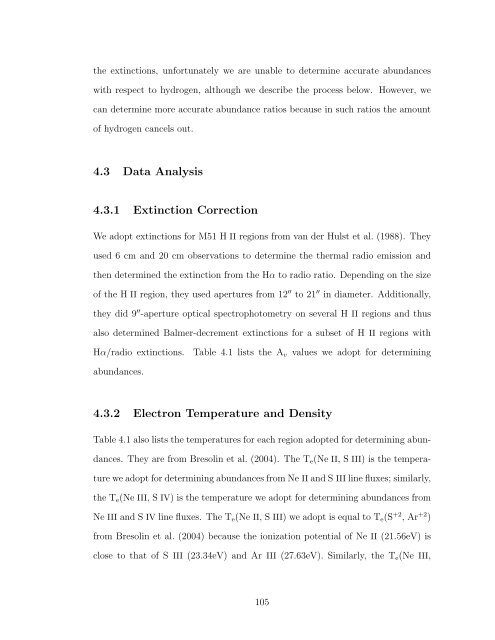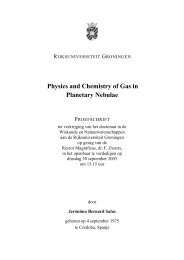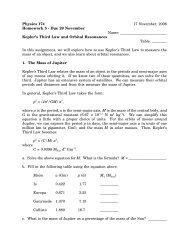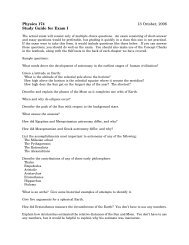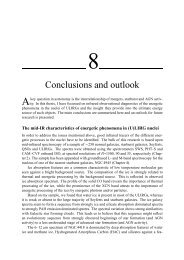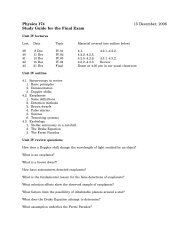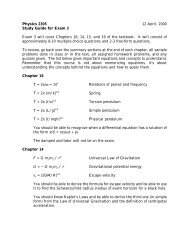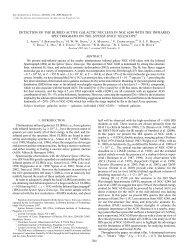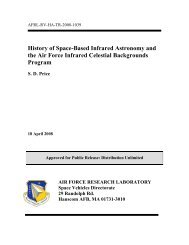TRACING ABUNDANCES IN GALAXIES WITH THE SPITZER ...
TRACING ABUNDANCES IN GALAXIES WITH THE SPITZER ...
TRACING ABUNDANCES IN GALAXIES WITH THE SPITZER ...
Create successful ePaper yourself
Turn your PDF publications into a flip-book with our unique Google optimized e-Paper software.
the extinctions, unfortunately we are unable to determine accurate abundances<br />
with respect to hydrogen, although we describe the process below. However, we<br />
can determine more accurate abundance ratios because in such ratios the amount<br />
of hydrogen cancels out.<br />
4.3 Data Analysis<br />
4.3.1 Extinction Correction<br />
We adopt extinctions for M51 H II regions from van der Hulst et al. (1988). They<br />
used 6 cm and 20 cm observations to determine the thermal radio emission and<br />
then determined the extinction from the Hα to radio ratio. Depending on the size<br />
of the H II region, they used apertures from 12 ′′ to 21 ′′ in diameter. Additionally,<br />
they did 9 ′′ -aperture optical spectrophotometry on several H II regions and thus<br />
also determined Balmer-decrement extinctions for a subset of H II regions with<br />
Hα/radio extinctions. Table 4.1 lists the Av values we adopt for determining<br />
abundances.<br />
4.3.2 Electron Temperature and Density<br />
Table 4.1 also lists the temperatures for each region adopted for determining abun-<br />
dances. They are from Bresolin et al. (2004). The Te(Ne II, S III) is the tempera-<br />
ture we adopt for determining abundances from Ne II and S III line fluxes; similarly,<br />
the Te(Ne III, S IV) is the temperature we adopt for determining abundances from<br />
Ne III and S IV line fluxes. The Te(Ne II, S III) we adopt is equal to Te(S +2 , Ar +2 )<br />
from Bresolin et al. (2004) because the ionization potential of Ne II (21.56eV) is<br />
close to that of S III (23.34eV) and Ar III (27.63eV). Similarly, the Te(Ne III,<br />
105


